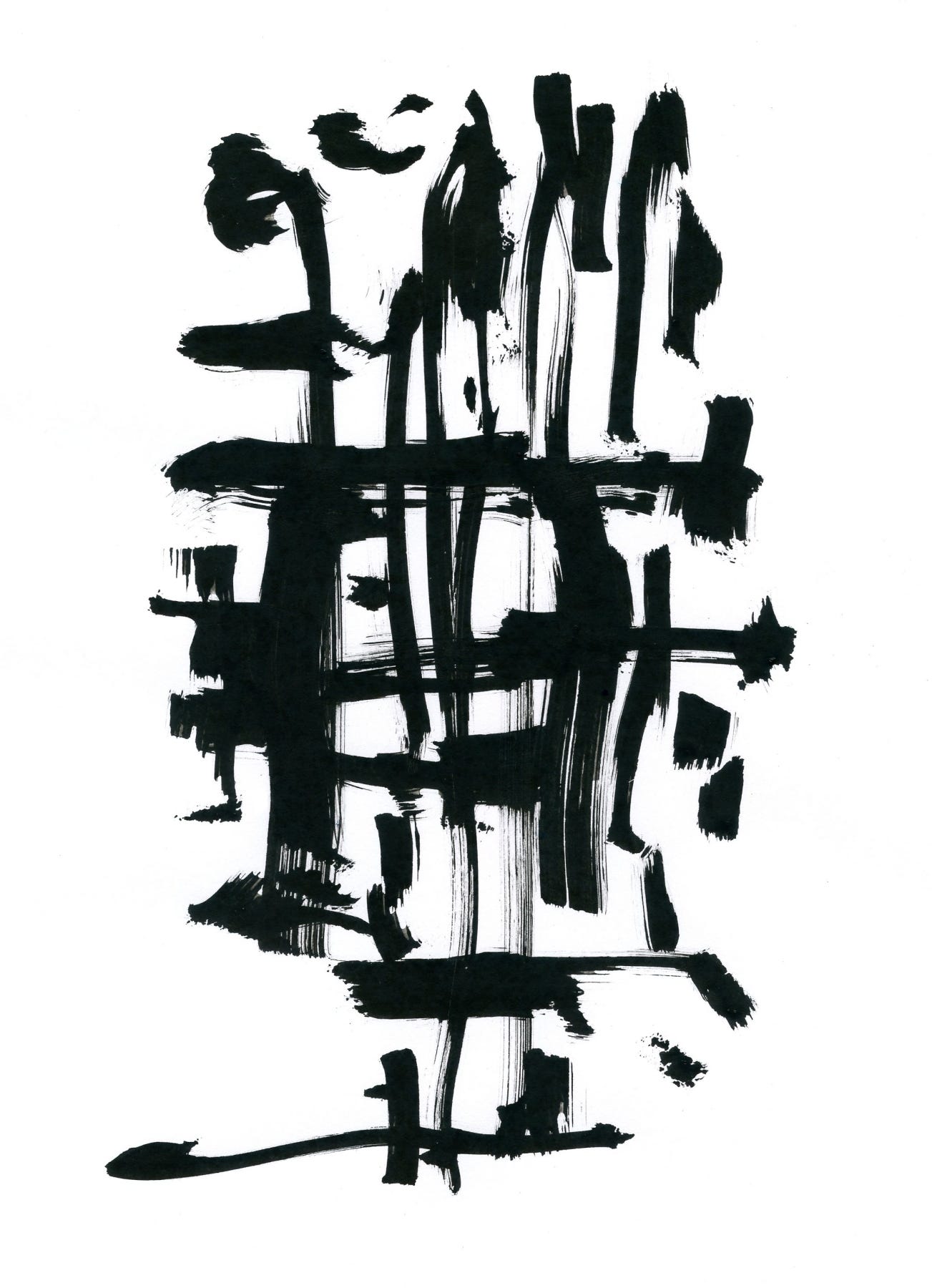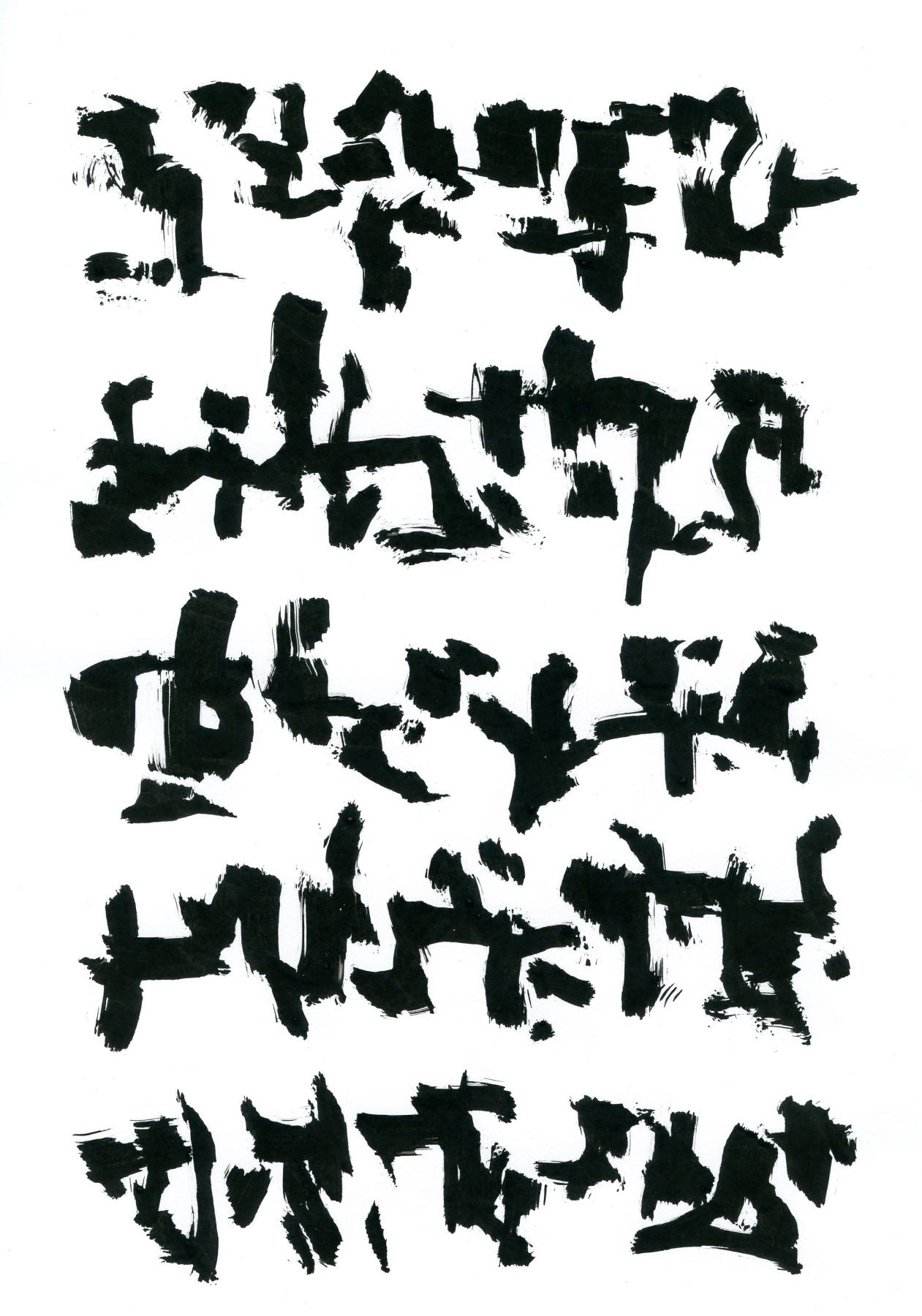Asemic Writing and the Spirit of Shufa/Shodō
There are practices in the world that remind us how fragile and unique each moment really is. Shufa, or Shodō in Japanese, is one of them. In the sweep of a brush, in the inked breath of a single line, the teaching is there: everything is transient, and in that transience lies the unrepeatable uniqueness of every action, every manifestation.
The calligrapher enters this knowing through no-mind (mushin)—a state of selfless translucence. Here the ego dissolves, time falls away, and gesture fuses with moment. To write in this spirit is not simply to command technique, but to inhabit being itself. Technique matters, yes, but it is hollow without presence. The true line does not appear from skill alone; it appears when body and spirit become inseparable from the flow of the brush.
Asemic writing touches this same territory, though it travels a different path. I approach the page without the cultural weight of Chinese or Japanese calligraphy—without centuries of standards, ideals, and subtle codes shaping every stroke. My lines are not burdened with the obligation to conform to convention or to transmit fixed meaning. Instead, they move freely, unanchored to the necessity of language, released into a field where the mark can simply be.
Sometimes I write self-consciously, aware of composition and structure. Other times I enter that same no-mind stream, where the gesture writes itself and I am only its witness. Both states belong to the practice. The difference is not one of quality, but of orientation: I am not chasing mastery of a tradition, but cultivating attunement to the states of being that arise the moment the instrument touches the page.
In that sense, asemic writing is both sibling and stranger to Shufa and Shodō. It shares the spirit of presence, but it is not beholden to their cultural lineages. And because of this, I often feel I remain in a state of beginner’s mind—wandering, curious, unbound.
That, perhaps, is its gift: a reminder that the truest mark is not the one perfected, but the one alive.






I find this very interesting. A couple of years ago when I first bought your artwork, I needed more information about it and called your studio to see if I could get more information. When I list something for sale, I try to give my customers information about the creator. The cover page of your website was mostly written in Asemic Writing. At first I was frustrated, then I got caught up in the "script". I had to chuckle when you posted your articles about Asemic Writing. I had forgotten all about it, but I was wondering if the Writing was actually about something. That was my first introduction to the world of Cecil Touchon.